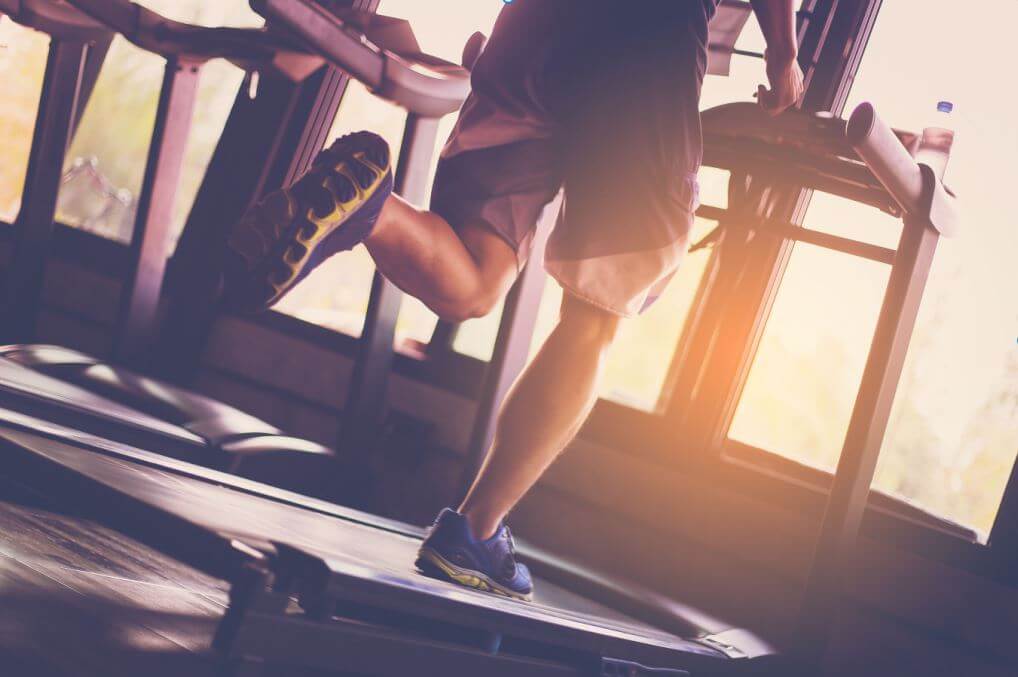Gym Injury Compensation Claims
The latest available statistics reveal that as of June 2024, 10.7 million people held gym memberships. The fastest-growing age group for gym memberships is those aged 55 and over!
Most gyms are well run run by people who care about their patrons. However, even well-run gyms are not immune from clients injuring themselves while working out.
A recent study found that two of every five people in Britain have suffered injuries whilst trying to emulate sports stars like Keely Hodgkinson and Adam Peaty, but that’s usually down to trying to do too much, too soon. Many gym injuries are self-inflicted, e.g., a failure to warm up or stretch properly.
However, a survey of gym-goers found that 5% of them said they were not taught how to use the equipment by staff when they joined the gym and that’s potentially a real problem when, as a Nuffield Health survey showed, 17% of gym users felt ‘largely clueless’ on how to use the gym and almost a quarter were too embarrassed to seek help!
If you find yourself in this category of gym users and want to try to avoid an accident at the gym so you don’t have to claim for gym accident compensation, check out our blog, 10 Things to look Out for to Avoid Injury at the Gym.
If you’ve suffered an injury at the gym due to someone else’s negligence, you may consider bringing a claim for gym accident compensation. However, if you haven’t previously been involved in an accident, finding out how to get the right legal advice can seem daunting. This guide explains the key aspects of gym injury claims. These include:
- Establishing liability, i.e., who was at fault
- Identifying some of the common causes of gym accidents
- Understanding the types of damages you can claim for
- Additionally, we will discuss the role of personal injury solicitors in the claims process.
Introduction to Gym Accident Compensation Claims
When you join a gym or attend a fitness class, you expect to exercise in a safe and well-maintained environment. However, accidents can and do happen, sometimes through no fault of your own. You could claim compensation injury if you were injured at the gym because of someone else’s negligence. The claim for damages will be to compensate you for the pain and suffering you’ve experienced from getting injured. You can also claim back any financial losses you incur from the accident.
Claiming compensation for an accident at the gym can be difficult. Proper guidance and support from a specialist personal injury solicitor will help you navigate the claims process, and this will help you get the compensation you deserve. It all starts with understanding the gym owner’s duty of care to you and establishing liability for your injury. Many solicitors offer a free claim check to assess your case.
Establishing Liability: The Gym Owner’s Duty of Care
Gym owners and operators have a legal responsibility to ensure the health and safety of their members. This responsibility, known as a duty of care, extends to providing:
- Well-maintained equipment
- Providing all new members with a thorough induction session
- Adequately trained staff
- Sufficient supervision to prevent accidents and injuries
Before you bring a gym injury compensation claim, you’ll need to prove the accident resulted from a breach of duty of care by the gym operator. You must prove the following:
- The breach was the direct cause of your accident.
- The injury you sustained resulted from the accident.
- The gym owners did not fulfil their legal duties according to health and safety laws and/or the gym owners did not follow industry best practices.
It’s important to be aware of time limits for making a claim. In general, you have three years from the date of the accident to start legal proceedings, but it’s best to seek advice from a solicitor as soon as possible.
Common Causes of Gym Accidents and Injuries
Faulty Equipment
One of the most common causes of gym accidents is faulty or poorly maintained equipment. Cardio machines, strength training equipment, or even items like yoga mats and exercise balls can cause accidents if they are not correctly maintained. If you suffer injury due to faulty equipment, gathering evidence to support your claims is crucial, such as photographs of the equipment and any maintenance records the gym may have.
Inadequate Supervision
Another common cause of gym accidents is inadequate supervision by gym staff or personal trainers, such as:
- Failing to provide proper instruction on how to use equipment
- Not monitoring gym users’ activities to ensure they’re exercising safely
- Not intervening when an accident is imminent
In these cases, it’s essential to demonstrate that the lack of supervision caused or contributed to your injury. CCTV footage from the gym, if available, could provide valuable evidence.
Poor Maintenance
Gym operators are responsible for maintaining a clean and safe environment for their patrons. Complying with this requirement includes properly managing any hazards that may pose a risk to gym-goers, such as wet floors, cluttered workout areas, or poorly lit spaces. Poor gym equipment maintenance may have caused your accident. To prove this, you must demonstrate that the gym owner was aware of the issue with the equipment or should have known about it, and they failed to take appropriate action to rectify the problem.
Poor maintenance of the facilities can lead to the following:
- Slip and fall accidents caused by slips on wet floors or trips over loose or raised exercise mats
- Injuries caused by accidents on faulty treadmills
Slip and fall compensation amounts can be significant, depending on the severity of the injuries sustained.
Key Elements of a Successful Gym Injury Compensation Claim
Reporting the Incident
The first step in your gym injury compensation claim is to report the incident to the gym staff or management as soon as possible. It is important to do this for two reasons:
- It ensures that the gym is aware of the accident and can take steps to prevent similar incidents in the future.
- It records the incident, which can be valuable evidence for your claim.
Be sure to get a copy of the accident report for your records.
Gathering Evidence
After reporting the incident, gathering as much evidence as possible to support your claim is crucial. This may include:
- Photographic or video evidence of the accident scene and any contributing factors (e.g., faulty equipment or wet floors)
- Witness statements from anyone who saw the incident or can attest to the gym’s negligence
- Medical records and documentation of your injuries and treatment
- Keeping records of any communication with the gym staff or management regarding the incident
Types of Damages in a Gym Injury Claim
General Damages: Pain and Suffering
General damages are awarded to compensate you for the pain, suffering, and loss of enjoyment of life that you’ve experienced due to your gym injury. The extent of general damages you can claim will depend on the severity of your injuries and their impact on your daily life.
The Judicial College Guidelines (JC guidelines) provide a framework for valuing general damages.
Visit our interactive personal injury compensation calculator for a guide to the amount of compensation you may be entitled to for different injury types.
Special Damages: Financial Losses, Travel Costs, and Medical Expenses
Special damages compensate you for any financial losses you’ve incurred due to your gym injury. Such items include:
- Lost earnings due to time off work
- Medical expenses, such as prescription medications, therapy, or specialist medical appointments
- Travel costs associated with attending medical appointments
- Costs of any necessary alterations to your home required due to your injuries
- Costs of rehabilitation to aid your recovery
The Role of Personal Injury Solicitors in the Claims Process
Personal injury solicitors, like Mooneerams, play a crucial role in the gym injury claims process. They can help you navigate the complexities of the legal system, gather evidence to support your claim, and negotiate with the gym owners’ insurance company on your behalf. If necessary, they will issue court proceedings on your behalf and represent you in court if the claim hasn’t settled beforehand. (Most claims do settle without going to court).
With their expertise and experience, experienced personal injury solicitors can help you secure the maximum compensation you’re entitled to, ensuring you are fairly compensated for your pain, suffering, and financial losses. Many offer a compensation calculator on their website to give you an idea of what you might be able to claim.
The Benefits of a No Win No Fee Arrangement
Most personal injury solicitors offer to fund gym accident claims on a No Win No Fee basis. Once you have signed a No Win No Fee agreement, you won’t pay any legal fees unless your claim is successful. No Win No Fee arrangements provide peace of mind and financial security.
Practical Steps to Take After a Gym Accident
If you’ve been injured in a gym accident, it’s important to take the following practical steps:
- Seek medical attention for your injuries, even if they appear minor.
- Report the incident to the gym staff or management and ensure it’s documented in their accident records.
- Gather evidence to support your claims, such as photographs, witness statements, and medical records.
- Contact a personal injury solicitor to discuss your case and explore your options for claiming compensation.
Tips for Preventing Gym Accidents and Ensuring Health and Safety
While some gym accidents cannot be avoided, many can be prevented by following these health and safety tips:
- Always read and follow the instructions for using gym equipment. Ask a staff member for assistance if you’re unsure how to use any equipment.
- Be aware of your surroundings and watch for hazards like wet floors or cluttered workout areas.
- Warm up and stretch before exercising to reduce the risk of injury.
- Listen to your body and know your limits – don’t push yourself too hard or attempt exercises you’re uncomfortable with.
What if I signed a disclaimer waiving my rights to make a personal injury claim in the event of an accident?
You will probably be asked to sign up using a membership agreement when you first join a gym. Many gym membership agreements still contain a waiver clause; you waive your right to claim personal injury if you are injured at the gym.
Although clauses like this are not illegal, gym owners cannot exclude liability for personal injury or death (at their premises) caused by their negligence as per the Unfair Contract Terms Act 1977. Gym owners still owe their members a duty of care, whatever the waiver clause says.
If you are injured in an accident at the gym that you believe is due to the negligence of the gym owners or their staff, do not be put off from making a claim simply because you signed a disclaimer.
Conclusion: Successfully Claiming Compensation for a Gym Injury
Claiming compensation for a gym injury can be complex and challenging. However, professional guidance and support from an experienced personal injury solicitor can secure you the compensation you deserve.
After reading this guide, we hope you are ready to take your claim forwards. You will have a better understanding of such topics as;
- your rights following a gym accident
- how to establish liability
- how to gather evidence
If you have the right firm of personal injury solicitors on your side, you’ll soon be on your way to making a successful gym injury compensation claim.
You may be entitled to compensation if you get injured in a gym accident. Do not hesitate to contact a personal injury solicitor and discuss your case to explore your options.
At Mooneerams, we are specialist personal injury claim, solicitors.
We have an excellent record of recovering compensation for clients who have suffered injuries from accidents in public places, such as in gyms.
Mooneerams only handle personal injury claims, and together, the members of their team have a combined experience of 150 years.
You may be able to claim if you have been injured in an accident at a gym. Contact Mooneerams now to find out on 029 2199 1927.






















